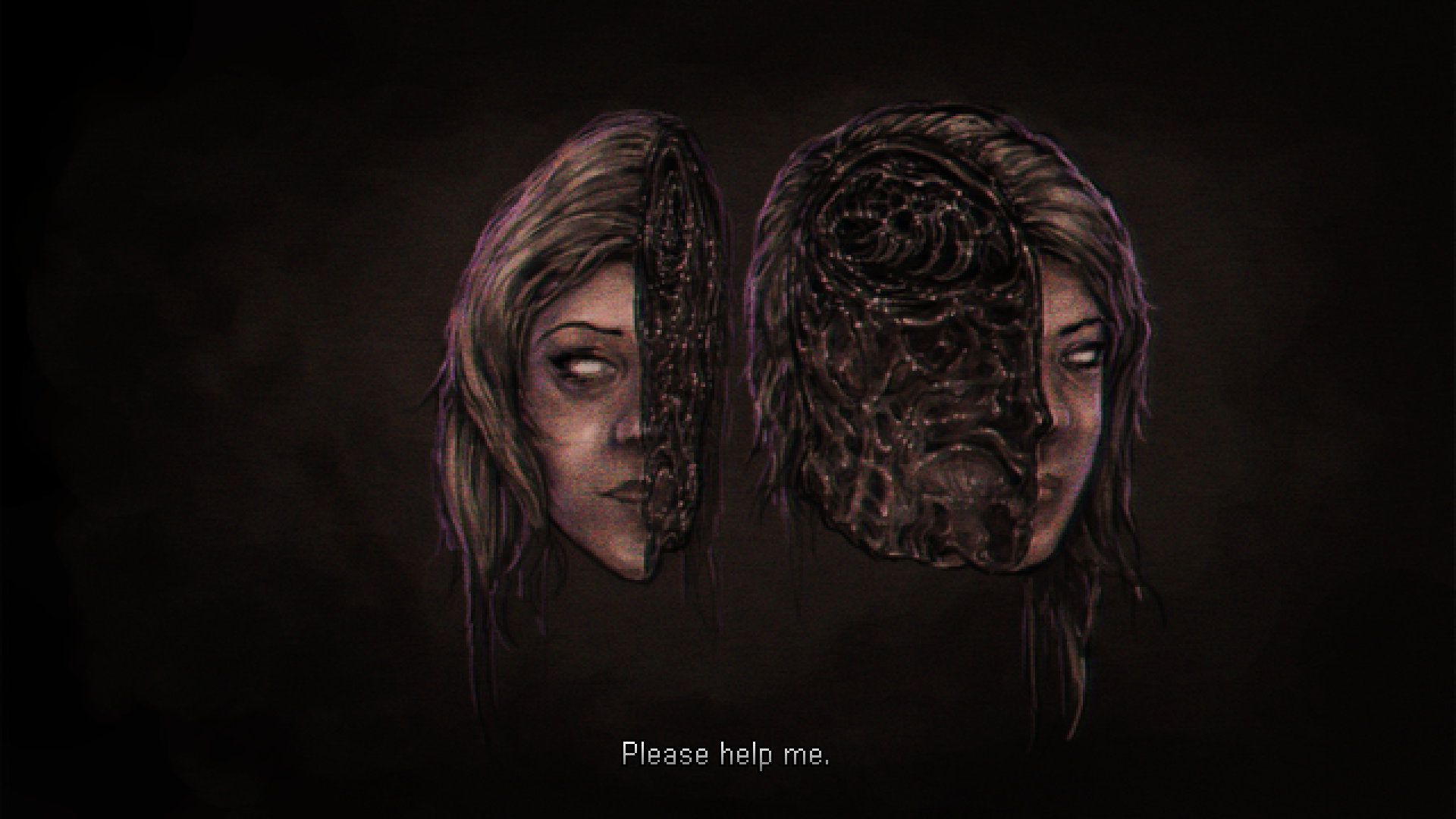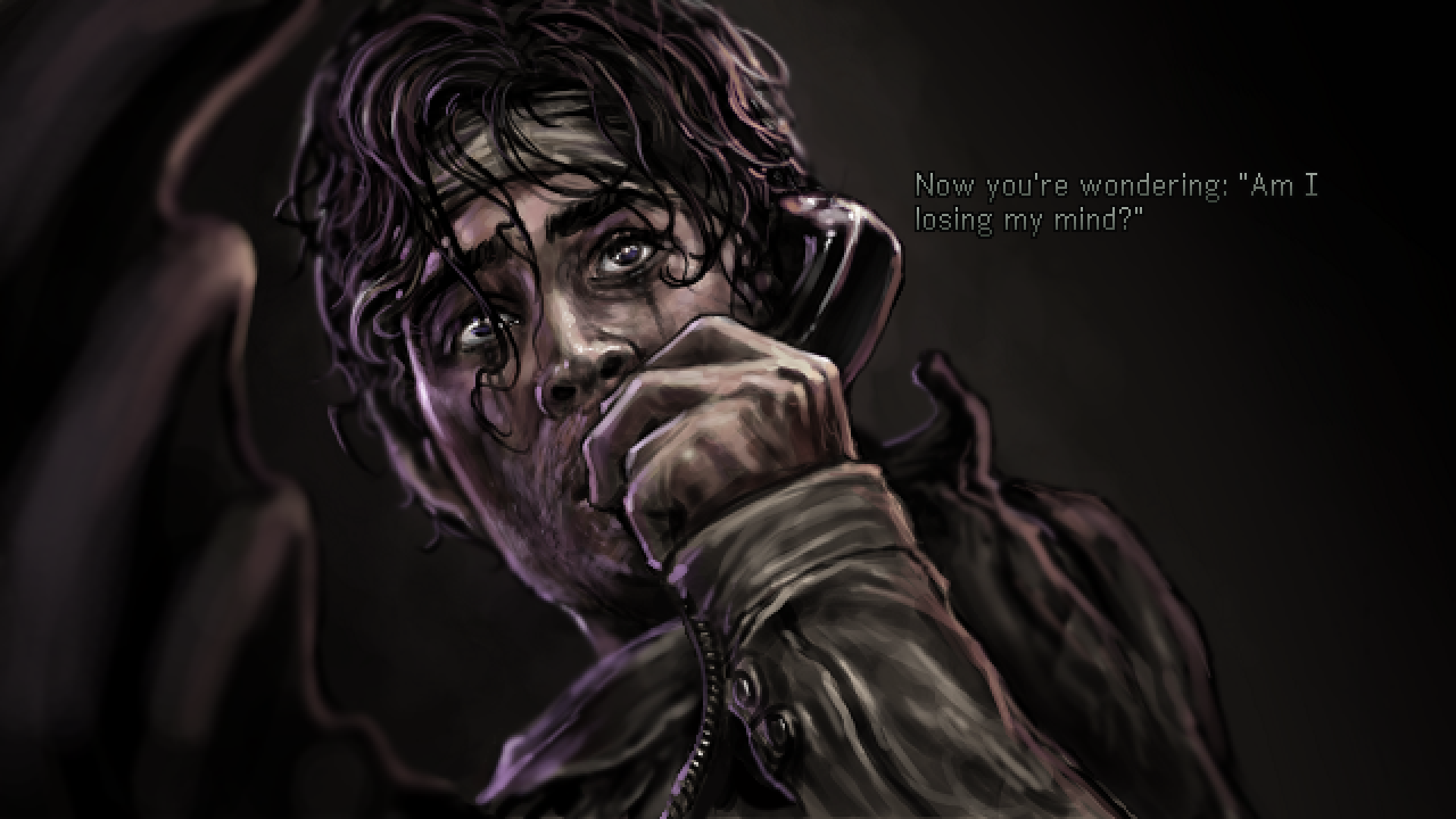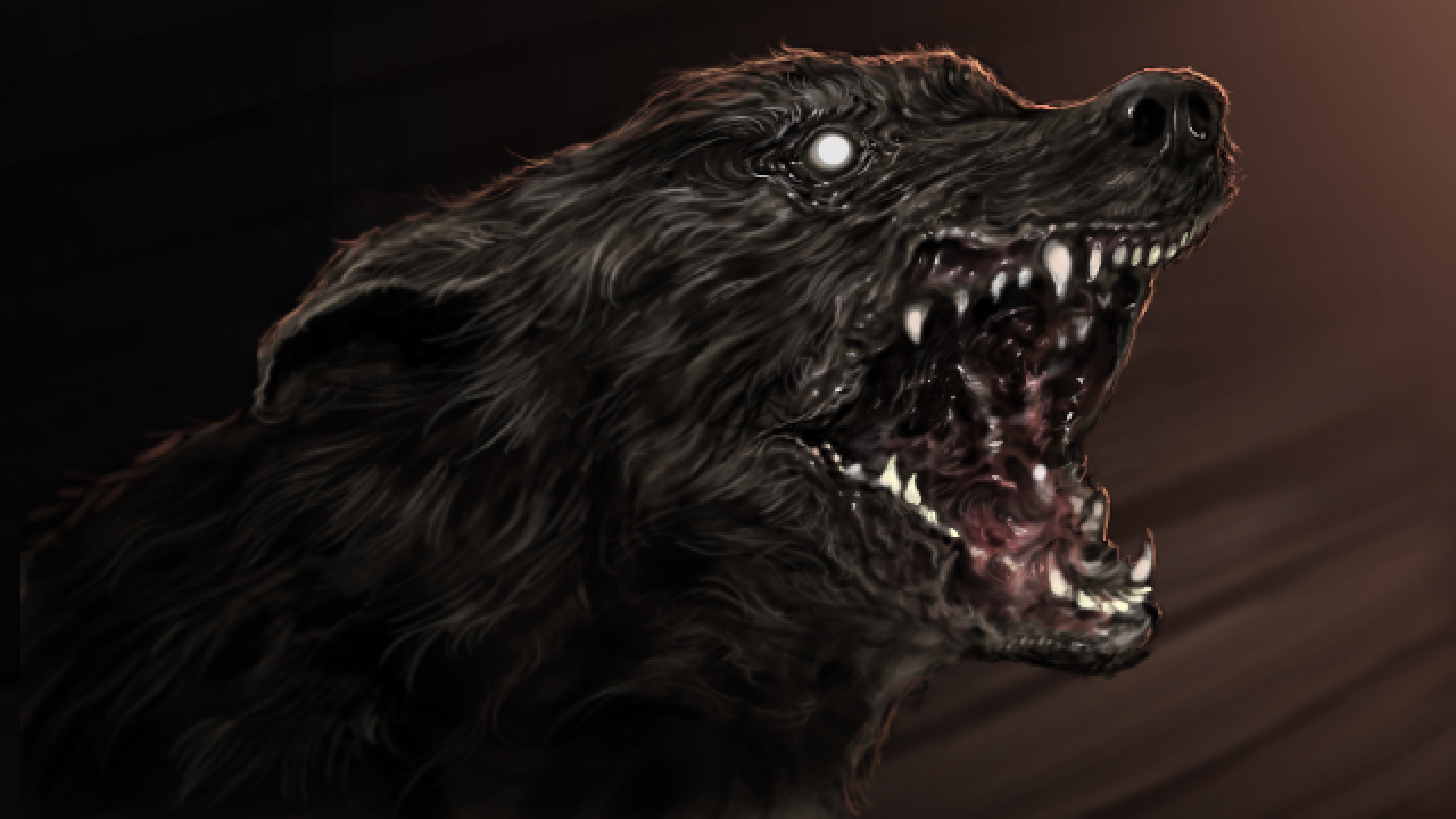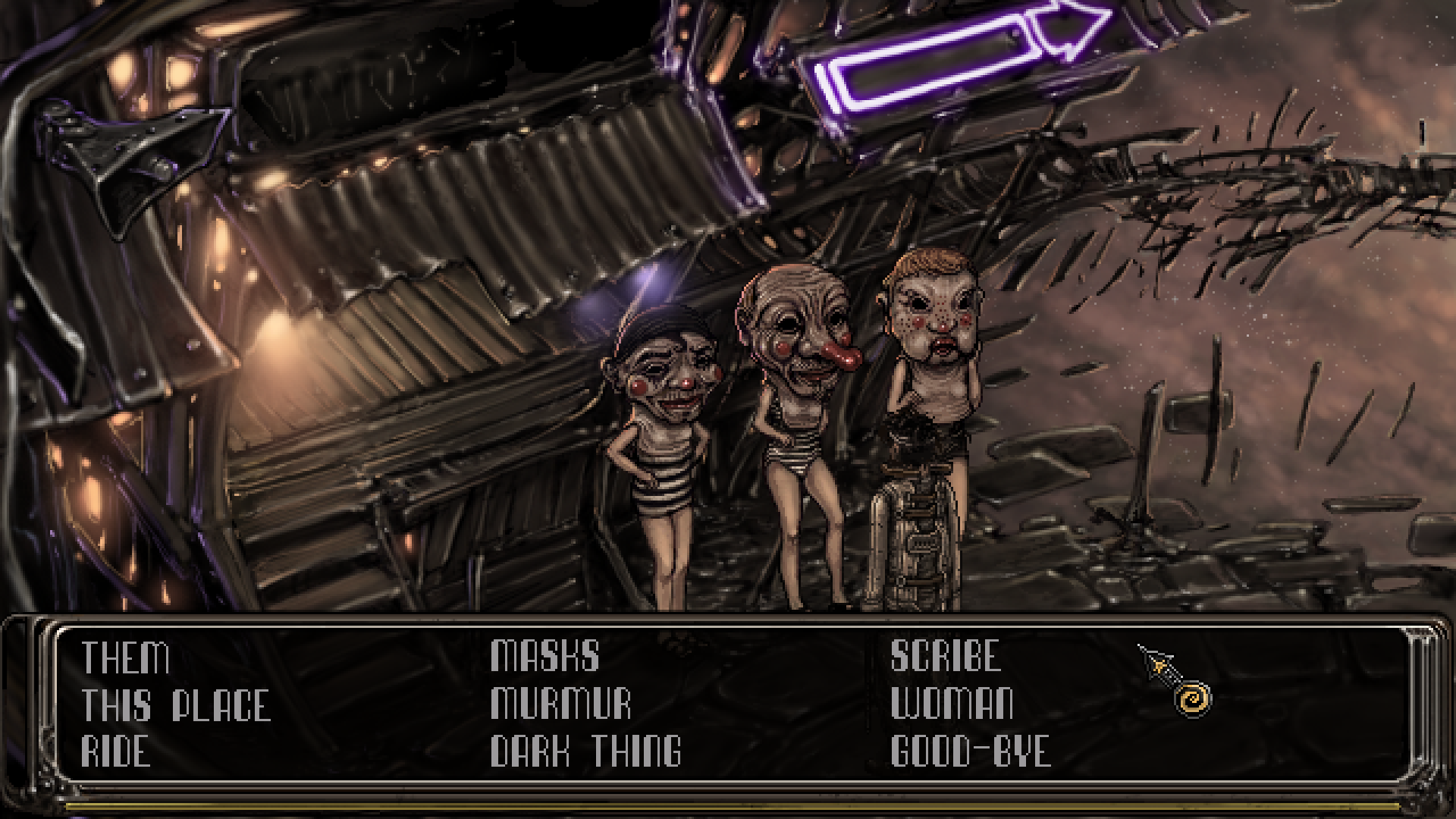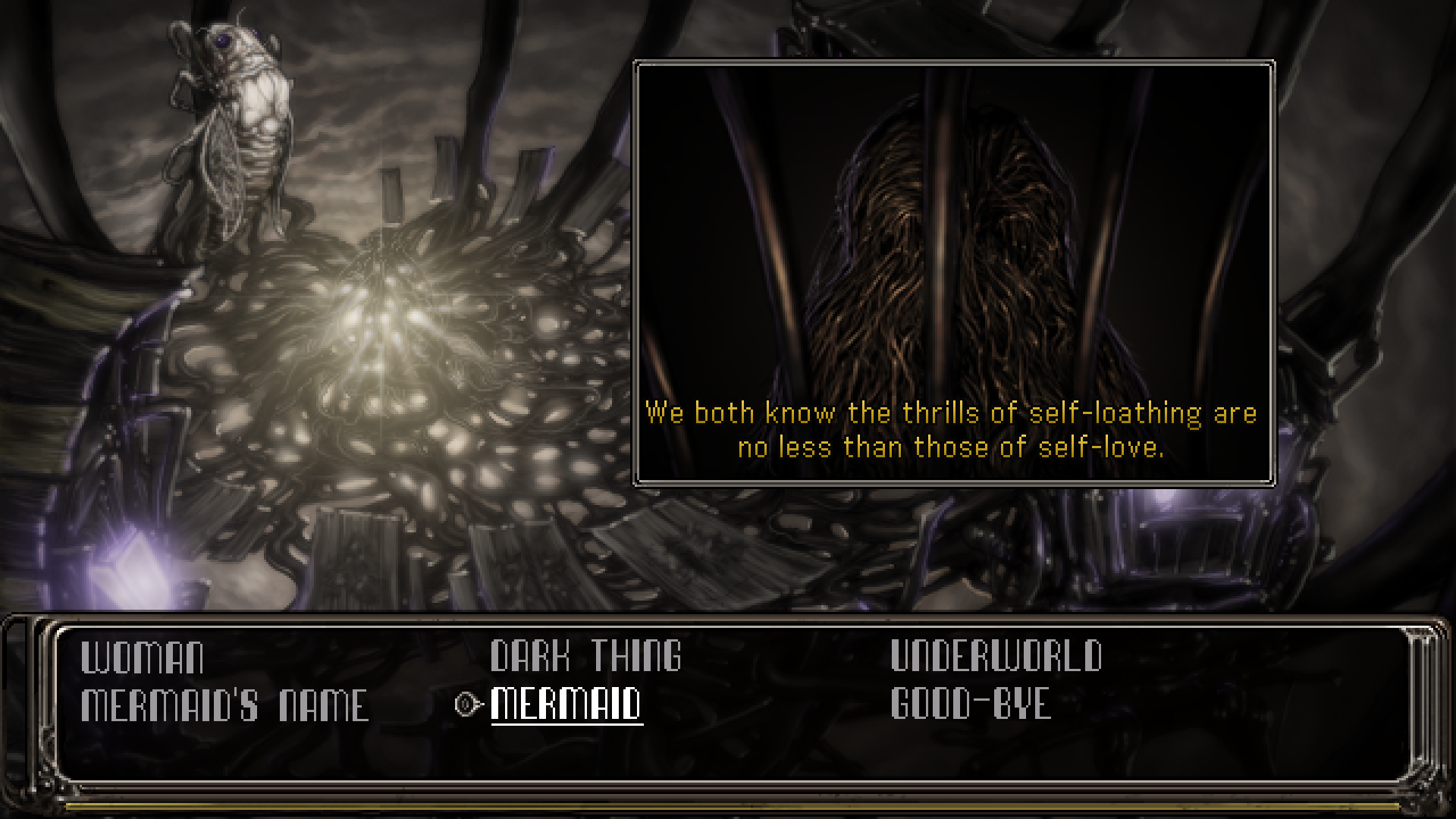Our Verdict
The narrative is strong and dark, but the game beneath it struggles to keep up.
PC Gamer's got your back
What is it? A point-and-click game where what you point at makes you say "eurgh".
Expect to pay: $15/£12
Developer: Wormwood Studios
Publisher: Wadjet Eye Games
Reviewed on: AMD Ryzen 5 3550H, GeForce GTX 1650, 8 GB RAM
Multiplayer: No
Link: Official site
Efforts to build a sense of unease begin immediately in this dark point-and-click adventure. Your nameless character, who is wearing an untied straitjacket, finds himself in a surreal landscape. Standing at the top of a narrow path surrounded by an abyss, the only way forward is down this path to a huge, talking clown head. After telling you a dark joke, it lets you enter through its mouth, and the game proper in this twisted carnival world begins.
Publisher Wadjet Eye has a reputation for great modern point-and-clicks, both developing its own titles (Unavowed, The Blackwell Legacy) and shepherding other developers’ projects to launch (Primordia, Technobabylon). Strangeland feels at home in that stable, but it struggles to live up to the company's better efforts.
It certainly has its own style, however. The art mostly uses a dark and miserable palette, which is entirely appropriate; this is not a happy place. The music, too, fits the scene nicely. There's a kernel of carnival music in there somewhere, but the joy and warmth have been warped beyond all recognition. The notes have been inverted and twisted until the game sounds as disturbing as it looks.
Upon entering the carnival, you find a woman tearfully throwing herself down a well. Although your character's memory is gone, he knows that she means something to him, and so the objective of the game is, ostensibly, to save her. You’ll repeatedly see her jump in, each time unable to stop her, and as you progress she haunts your journey.
Strangeland walks a darker path than you might typically expect from the genre, but it still follows certain rules. You have an inventory, you can combine items before using them, there are puzzles typical of the genre—it’s all very familiar, despite the grim atmosphere.
People are strange
The dark heart of Strangeland, both for better and for worse, is a determination to stay true to its artistic vision. It's a world of metaphor and allegory. Characters that you try to speak with usually send the conversation into a dead end, refusing to give a straight answer. But in this world that makes perfect sense. Never embarrassingly blunt nor pretentiously opaque, Strangeland balances its weirdness impressively well through its 4-5 hour runtime. The atmosphere and storytelling are excellent.
It's the 'game' bit where the experience wobbles. The art is superb. Anything that isn't run down or twisted is strangely organic; the environments are flavoured with a hint of HR Giger. The darkness means it can be hard to discern fine detail, though, which means that objects you can pick up or interact with are easy to miss. This is sometimes the greatest challenge that a puzzle presents, as most of them are otherwise pretty simple.
Keep up to date with the most important stories and the best deals, as picked by the PC Gamer team.
For a game that boldly carves out its own path in terms of subject matter and atmosphere, the puzzle design overall is rather disappointing. A carnival shooting gallery is simply a matter of clicking targets with your mouse, and in a world where I can talk to birds, a furnace, and a disembodied head, it's slightly disappointing to find myself making a grappling hook.
The most infuriating challenge in the game is one of those tiresome tile puzzles (or, here, a board of lights) where pressing one activates or deactivates those around it, until the board is complete. Through a combination of skill and luck, it didn’t take me too long to get past, but it's a good example of how the puzzles lack the imagination of the worldbuilding. Should you get stuck there's at least an in-game hint system via a payphone, where in typically odd fashion you receive hints from a hateful, angry version of yourself.
Hope and glory
I’ve avoided spoilers, but it's worth noting that Strangeland explores death, grief, and regret, as well as self-harm and suicide, and in quite explicit terms.
There are moments of dark humour, which are perfectly appropriate, but there are also a few examples of optional dialogue where the aim seems to be a more lighthearted laugh. Had this been a regular occurrence, it might have worked as a comment on the strange and unpredictable ways that human beings react to trauma and tragedy. In isolated pockets, however, it's simply out of place.
While there’s an enormous amount to unpack and interpret, you don’t have to take a scholarly approach to enjoy the game. If you’re just looking for a surreal horror adventure, Strangeland can absolutely deliver that. However, the further you stray from interpreting its message, the more difficult it is to enjoy. Considered purely as a point-and-click game, Strangeland is not great. Considered purely as an artful exploration of difficult subjects, it's largely a success. The truth of the situation, of course, is that it’s a mix of the two, which makes for an uneven experience.
I’m very glad for Strangeland: It's smart, unapologetically creepy and gloomy, and knows exactly what it wants to do. Should other games follow Strangeland's deep dark footsteps however, they'll need to do a better job of telling their stories with sharp and compelling game design.
The narrative is strong and dark, but the game beneath it struggles to keep up.
